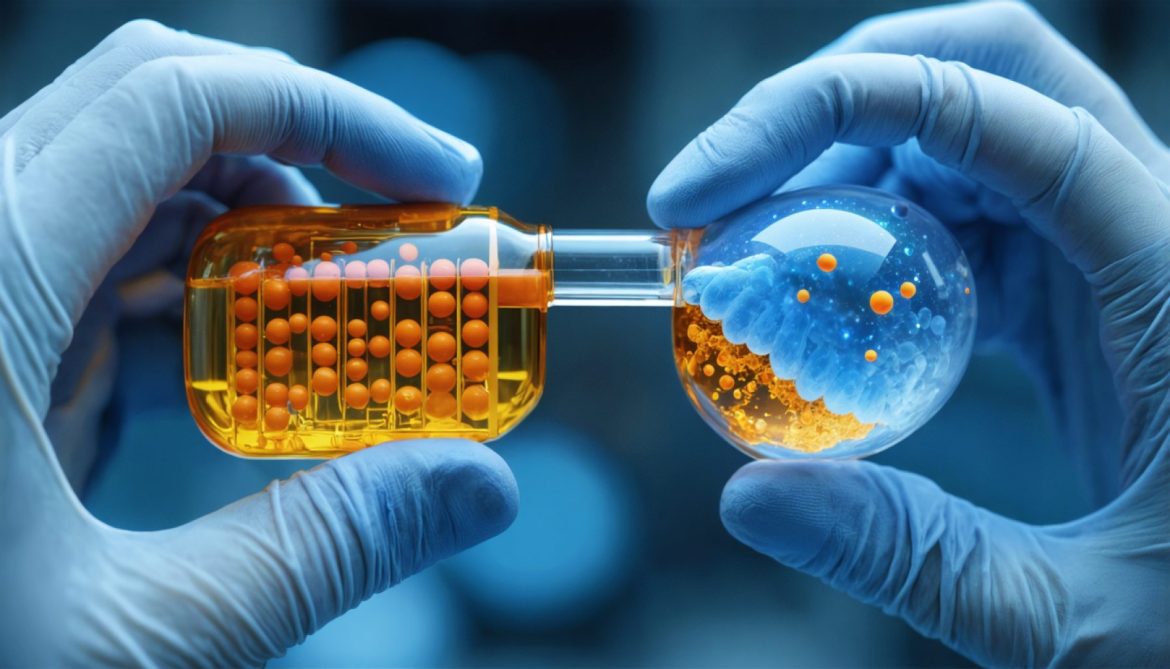- Biotechnology is central to U.S. national strategy, representing a crucial battleground in the competition with China.
- The National Security Commission on Emerging Biotechnology’s report urges prioritizing biotech to maintain leadership, enhance manufacturing, and secure supply chains.
- Biotech promises innovations like sustainable fuel and resilient crops, vital amid climate and global challenges.
- Senator Todd Young envisions revitalizing American manufacturing and job creation through domestic biotech industries.
- Biotechnology is seen as pivotal to economic and strategic power, reflecting the U.S.-China race for 21st-century dominance.
- The report provides a policy framework to maintain biotech as a cornerstone of American innovation and security.
- Investing in biotechnology is crucial for future prosperity and global leadership.
Amid the gleaming corridors of power, where national strategies and global influences intersect, U.S. Senator Todd Young stands at the crossroads of science and security. Last week, the senator addressed the House Armed Services Subcommittee on Cyber, Information Technologies, and Innovation with a clarion call: Biotechnology is not just a scientific marvel; it is a pivotal battleground in America’s escalating competition with China.
This discussion unfolded against the backdrop of a new report by the National Security Commission on Emerging Biotechnology, which Senator Young chairs. The report ardently advocates for the U.S. to prioritize biotech to sustain its leadership, bolster domestic manufacturing, and secure an impervious supply chain.
Imagine a world where microbial factories produce sustainable fuel, or resilient crops feed millions amid climate upheavals. This is the promise of biotechnology. But more than a beacon of scientific advancement, biotech emerges as a cornerstone of national strategy. It holds the potential to redefine military might by enhancing the capabilities of warfighters through innovations that could keep pace with—or surpass—global adversaries.
In his remarks, Young articulated a vision of restored American manufacturing vigor, driven by repatriating key industries through biotechnology. The aim is to cultivate American jobs and products, fortifying economic power and marshalling the forces of innovation once more on American soil.
This isn’t merely technological fancy; it’s an imperative. As the U.S. and China contend for 21st-century dominance, biotechnology is the new gold rush, a fertile ground where economic muscle and strategic supremacy intertwine. The stakes are staggering, and the outcome could redefine geopolitical structures for decades.
The report dovetails technological ambition with practical policy, offering a blueprint to ensure that biotech endures as a flagship of American inventiveness. The substance of the report reflects not just on the mechanics of innovation but its role as a bulwark against external dependencies that threaten the nation’s security and economic lifeline.
The landscape of global competition is shifting, and nations that navigate these biotech currents will chart the courses of future prosperity and power. The key takeaway is clear: Investing in biotechnology isn’t just a nod to progress; it’s an investment in national destiny. The United States stands at a precipice, and the call to action is resolute—embrace biotechnology to secure its place at the helm of global leadership.
The Biotech Battleground: America’s Race with China for Technological Supremacy
Introduction
Amid an era of rapidly advancing technologies, biotechnology has surfaced as a critical arena where the United States must maintain its competitive edge, particularly against rivals like China. U.S. Senator Todd Young has emerged as a notable voice highlighting the strategic importance of biotechnology, not only as a scientific field but as a core component of national security and economic strategy. This article explores the broader implications of this biotech race, offering insights into its potential impact on American manufacturing, military strength, and global leadership.
Biotechnology: Reshaping Security and Economy
Biotechnology as a Strategic Resource:
Biotechnology promises more than groundbreaking innovations; it is poised to redefine the economy and military capabilities. From creating bioengineered fuels to developing disease-resistant crops, this field is at the forefront of providing sustainable solutions to global challenges. These innovations can bolster military capabilities by enhancing soldier resilience and facilitating the development of new defensive technologies.
Manufacturing and Economic Revival:
Repatriating biotech industries to the U.S. is not only about securing supply chains but also about revitalizing domestic manufacturing. By localizing production, the U.S. can replenish its manufacturing sector, creating jobs and stimulating economic growth. This strategic move reduces dependence on foreign countries, reinforcing national security and economic stability.
Key Issues and Challenges in the Biotech Sector
Global Competition:
Biotechnology is a pivotal front in the geopolitical contest, primarily between the U.S. and China. As both nations pursue technological supremacy, biotech represents a new frontier where economic power and strategic dominance are deeply intertwined.
Investment and Policy Framework:
The report by the National Security Commission on Emerging Biotechnology outlines a comprehensive policy framework to guide the U.S. in securing its biotech leadership. However, significant investment is crucial to drive research, innovation, and infrastructure development.
Security Concerns:
Biotechnologies, while transformative, also present security vulnerabilities—particularly in biosecurity and bioterrorism. Ensuring that new biotech developments are safeguarded against misuse is critical.
Future Directions and Trends
Market Forecasts:
The global biotechnology market is expected to reach $727.1 billion by 2025, driven by innovations in healthcare, agriculture, and environmental applications. [Source: Grand View Research]
Sustainability and Bioeconomy:
Biotechnology’s role in sustainable practices is gaining attention, with bio-based products and eco-friendly technologies projected to become central elements of the global economy.
Regulatory Evolution:
As technology advances, regulatory frameworks must evolve to address ethical, safety, and commercial considerations associated with biotechnological applications.
Actionable Recommendations
1. Education and Workforce Development:
Invest in education and training programs to ensure a skilled workforce capable of driving biotech innovation and maintaining U.S. leadership.
2. Public-Private Partnerships:
Foster collaboration between government, academia, and the private sector to accelerate research and development efforts.
3. Enhanced Security Measures:
Implement robust security protocols to protect against intellectual property theft and bioterrorism threats.
4. Sustainable Practices:
Prioritize sustainable biotechnological solutions to mitigate environmental impacts and address global challenges such as food security and climate change.
Conclusion
Biotechnology is not merely a field of scientific inquiry but a battleground where the future of global leadership is contested. As the U.S. navigates this complex landscape, strategic investments and policies are crucial to harness biotech’s full potential. By championing innovation and safeguarding security, the U.S. can ensure that biotechnology remains a cornerstone of national prosperity and global influence.
For further insights into the latest technological advancements and strategic developments, visit CSIS.



